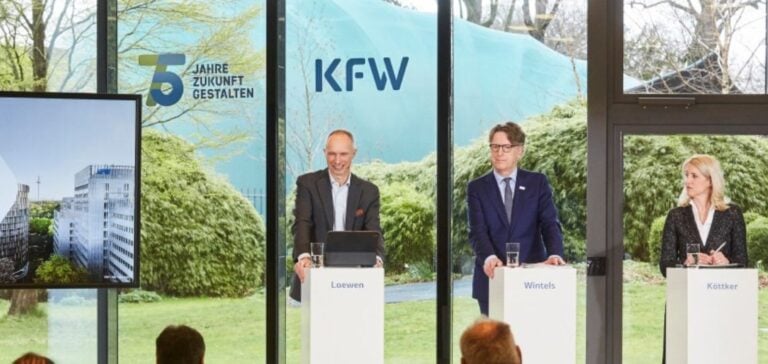Germany faces a major challenge if it is to achieve its goal of carbon neutrality by 2045. KfW, Germany’s state-owned bank, has revealed that the country will need to invest around 300 billion euros to modernize its power grids. This modernization is crucial to accommodate a growing proportion of renewable energies, in order to guarantee efficient and flexible transmission and distribution of electricity.
Networks adapted to renewable energies
Switching to renewable energies requires considerable investment in infrastructure. Currently, more than half of the energy consumed in Germany comes from renewable sources, and the government aims to increase this figure to 80% by 2030. To achieve these objectives, transmission and distribution networks need to be considerably strengthened and adapted.
KfW stresses that these investments cannot be financed by public funds alone. The majority of the capital required will have to come from private investors or the capital market. This means that public-private partnerships will be essential to raise the funds needed for this transformation.
Mobilizing private investors
At a capital markets conference held at KfW’s Frankfurt headquarters, over 150 representatives of infrastructure funds, pension funds, insurers, banks and energy companies gathered to discuss investment opportunities in Germany’s renewable energy sector. Participants included Deutsche Bank CEO Christian Sewing, Allianz CEO Oliver Bäte and Uniper CEO Michael Lewis, as well as German Economics Minister Robert Habeck.
Discussions focused on how the private sector can play a key role in financing the energy transition. Collaboration between the public and private sectors is seen as vital to the success of this network modernization initiative.
Ambitious targets for 2030 and beyond
Germany has already taken significant steps towards reducing its carbon footprint, but the targets set for 2030 and 2045 call for accelerated efforts. The country plans to reduce its dependence on fossil fuels and significantly increase the share of renewable energies in its energy mix.
However, to achieve these objectives, a profound transformation of the energy infrastructure is essential. This includes not only the modernization of power grids, but also the development of new energy storage and management technologies.
Experts at the conference also discussed the technical and regulatory challenges that need to be overcome to facilitate this transition. The integration of intermittent energy sources such as solar and wind power into the national grid poses unique challenges in terms of stability and management of supply and demand.
The success of this initiative will largely depend on Germany’s ability to attract the necessary investment and implement the appropriate political and regulatory reforms.
This ambitious transformation to a green economy positions Germany as a leader in the fight against climate change, while creating significant economic opportunities for investors and companies in the energy sector.





















